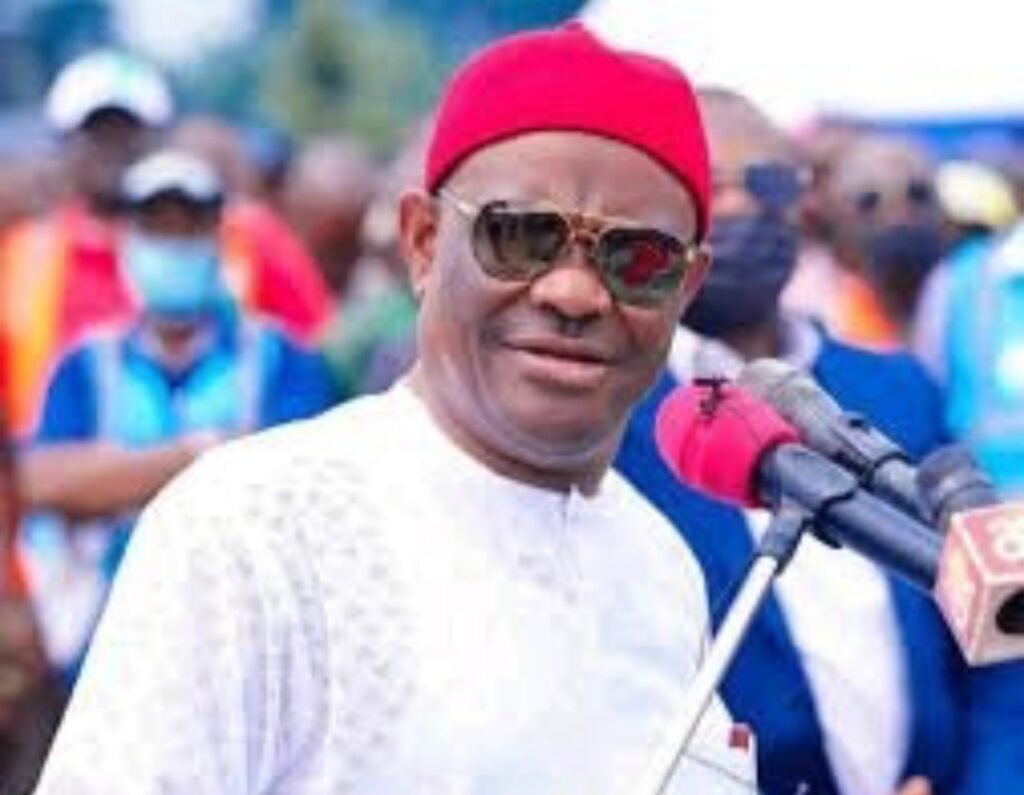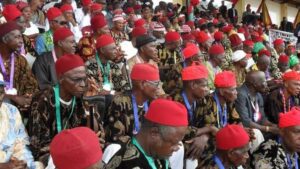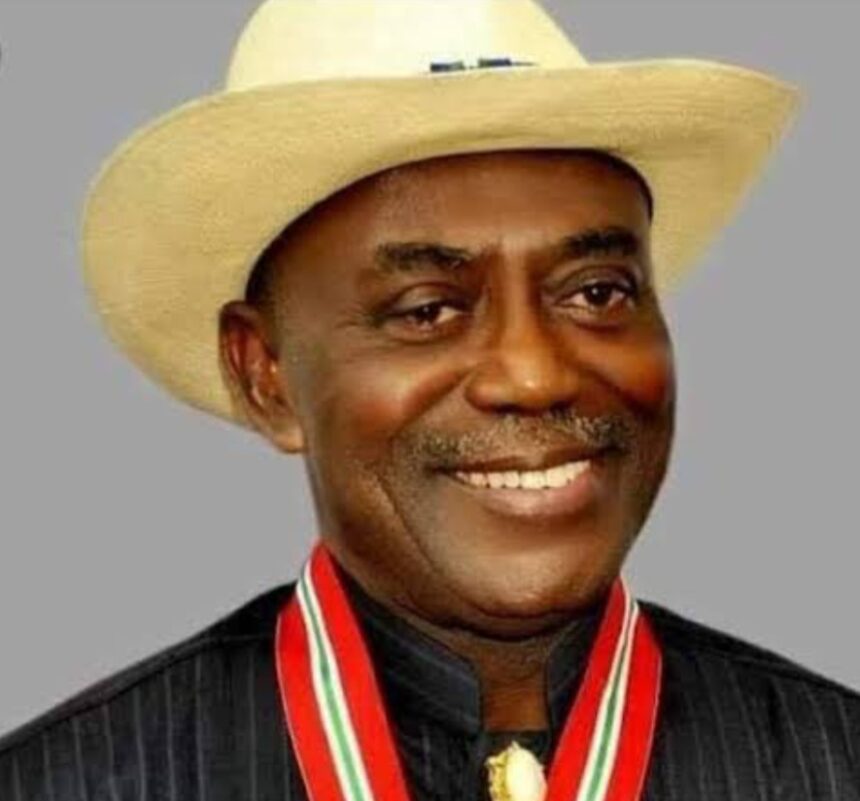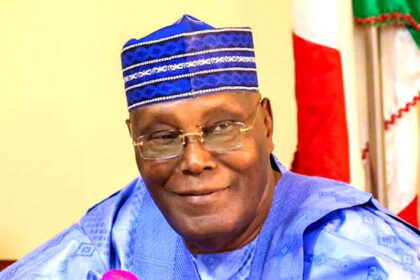There has always been a raging debate on whether the Ikwerre ethnic group are of Igbo origin or not, especially with the self denial of same by some Ikwerre speaking people of Rivers State. The situation is quite alarming now as the socio- cultural Ogbakor Ikwerre Worldwide recently came out to denounce one of their illustrous sons, Senator John Azuta Mbata against his being elected as President General Ohaneze Ndi Igbo Worldwide.
It is difficult to substantiate the claim whether the Ikwerre ethnic nationality is of Igbo extractoin or not. Be that as it may, it is certain that by inference Ikwerre ethnic group share boundaries with Imo and Abia State, both Igbo language speaking areas of Nigeria being one of the major ethnic groups in Nigeria. By cultural identity and social interactoins it is clear that Ikwerre ethnic nationality is a subgroup of Igbo larger tribe in Nigeria. …CONTINUE READING


The two groups by association share many things in common from their socio – cultural affinity to naming ceremony rites and how common those names such as Chibuike, Ikenga, Amaechi, Ngozi , Ada and Obinna in Okwerre tonal variation it is ‘Ovunda’ all come to mean one thing. Therefore, here are some of the recent conditions that led to the self- denial by some Ikwerre ethnic groups that they are not of Igboid stock.
From the Eastern Region Government and pre- colonial era, people from the hinterland Igbo land have established contacts due to trade and war incidents. With the movement of slaves to the coastal communities and in return the Igbos will engage on trade by barter with Farm produce such as Palm oil, Palm kernel and some rare items while they return to the hiterland with dried fish, imported ornaments as mirror and China wares dominated their exchanged products as gun powder and melted iron wares truly made the Igbo society a thriving one.
When the Missionary society movement came up the Igbos joined their coastal communities to welcome Missionary evangelical Missions that introduced reading and writing. At this time, inter- ethnic group marriages had advanced as the Igbos spent days before reaching to their destinations due to the mode of transportation then.
Those igbos who graduated from the Missionary schools took up clerical jobs as interpreters to the White trading partners and the various jurusdictions of local Customary Courts. At this time the Ikwerre people according to reports drifted further away from the coastal areas. This is how Igbos dominated Civil Service, Missionary workers population and as administrators. Reports has it, that with the coming of Eastern Regional Government the Igbos took advantage of having the Capital at Enugu, estabished favourable laws that set them far above other ethnic groups under Eastern Nigeria Government as Land laws were enacted with bank loans advanced to the enterprising Igbo businessmen and women.
The common language of conmunication at the market places, Churches, schools and at most social events was igbo language.
Just like it was carried out by other predominant ethnic groups in Eastern Nigeria and Northern Nigeria and Western Nigeria languages and culture of the dpminating Tribe took over that of the minorities found inside such regional governments.
One other important issue that brought bad blood between Ikwerre and Igbo ethnic groups is the issue of how Minorities in Eastern region Government were treated. The Ikwerres can never forgive Igbos who they accuse of using their domineering influence in the administration to corner most of their native lands without adequate compensation. Hence Laws of Eastern Nigeria relating to property acquisition and control, saw to the fact that igbos resident at Port Harcourt obtained leases of the properties on their various of residences. This is because the Igbos then were more economically well to do than the natives and they obtained money easily with financial facilities like loans given to them by African Continental Bank ACB established by the former Premier of Eastern region Dr. Nnamdi Azikiwe. For example extant laws of Eastern Nigeria with much emphasis on the State Lands Law section 3 of the law provides for the power although temporary to grant leases and Licences for temporary occupation of which subsection 1 reads “ subject to the regulations made under this law, the Governor may grant Leases of state Lands for any term,or in the case of a lease to a citizen of Nigeria for any indefinite term and may grant licences for the temporary occupation of State land.”
Thus, 7 years lease for state lands were officially granted to the Igbos for property development in Port Harcourt using Government fiat to the annoyance of the natives especially the Ikwerre ethnic nationality who are host to the Igbos.
Section 2 of the State lands Law Cap.122, Vol.vii, Laws of Eastern Nigeria 1963 has the following provisions “all public lands in Eastern Nigeria which where on the 30th day of September 1960 subject to the control of Her Majesty and held for a public purpose and all land thereafter acquired by or on behalf of the government of Eastern Nigeria and held for any such purpose”.
Aparently, as the Nigeria/ Biafra Civil war broke out from 1967 to 1970 as on May 27,1967 new states were created by General Yakubu Gowon Military regime and Rivers state was one of them which automatically made Rivers State inherit the Eastern Nigerian Lands Law.
For the fact that the outbreak of the Civil war made most residents in various states who were indigenes of other states to return back to their native homes…this made Federal Military Government of Gen. Gowon to enact Edicts on Abandoned Properties which states in the federation domesticated especially Military Government of Navy Commodore Alfred Diete-Spiff.
Section 1(1) of the Abandoned Property Act recognises the creation of the Abandoned Properties Implementation Committee with the right to sell abandoned properties. “every sale or disposition of Abandoned properties Implementation Committee set up by the Federal Government shall be deemed to have been lawful and properly made and any instrument issued by the Committee which purports to convey any estate or interest in land, shall be deemed to have been validly issued”.
With the above authority, the Military Government of Rivers State came up with its own domesticated Abandoned Property Edict titled Abandoned Property( Custody and Management) Edict no.8 of 1969 ( Laws of Rivers State).
Provions in that law such as stated below “ any property moveable or immoveable belonging to a person whose hometown or place of origin is not situate in the Rivers State of Nigeria which in the opinion of the Military Government or the authority has been abandoned by the owner thereof as a result of the Civil war in Nigeria or disturbances in the country leading it and is at the time of making of this Edict not in the physical occupation or under the personal control and management of such owners“.
The self denial by some Ikwerre ethnic body may not be unconnected with how Igbos lost their properties after some of the Igbos who returned could not reclaim their houses because some of the lands upon which those houses were built had their leases expired after 7 years in accordance to the Eastern Nigeria Lands Law and such lands were returned to Rivers State Government who sold them at a very cheap prices to the Ikwerre and Okrika Ijaw ethnic groups. So, in order to continue enjoying such largesse the Ikwerre easily come out to deny that they are not Igbos because some of them bought over the properties of the Igbos. Example is the multi storey buildings that line up Ikwerre road from Leventis Motor Park Flyover to Mile 1 Rducation Bus stop and to Mile 3 ultra modern market and Aba – Port Harcourt Express road including some undeveloped lands, jetties, ware houses and waterfronts were all retaken by the natives using the then Major David Mark (who later became Senate President David Mark) led Abandoned Property( Custody and Management) Implementation Committee 1969 to take over properties that were abandoned some due to their documents got lost as a result of the civil war.
Worse still is the lingering issues of having names of Prominent Igbo administrators named after the major streets of Port Harcourt such as it is found in low income zone of Diobu District of Mile 1, Mile 2 and Mile 3 and D/Line upwardly mobile zone. Mbonu street, Illoabuchi Street, Udi Street, Akokwa street, Nzimiro Street, You will see streets named after Igbo towns which Military Government of Rivers State remamed yet the original names are still being used as landmarks by residents living in those areas.
Then came the oil boom political era as the Ikwerre natives of course denied having association with the igbos who the Ikwerre ethnic group accused of coming to lay claim of the management of the accurals from the oil and gas extractive industry. So, for the Ikwerre to get employment in the oil and gas sector he or she must use indigenous quota which is their ability of identifying not being igbo will authonatically grant them such jobs.
In most cases there is no home in Ikwerre land where you will not find Igbo woman being married by rich and average income Ikwerre man and elsewhere in the Okrika speaking Ijaw and Kalabari ethnic groups. But when it is time for job allocation based on quota the Ikwerre man or woman whose biological mother is Igbo will deny not being Igbo whereas he or she speaks fluent Igbo laced with tonal variation of Ikwerre native language.
For the Igbos they have accepted the Ikwerre ethnic group as part of them and in the socio- cultural Ohaneze Ndi Igbo worldwide in 2024 zoned the post of National President to Rivers State where Igbo culture, Igbo language and traces of Ndi Igbo are found especially in the predominantly 4 Local Government Areas of Rivers state comprising of Port Harcourt, Obio/ Akpor, Emohua and Ikwerre Local Government Areas. Other Igbo speaking areas include Ahoada and Ogba/ Egbema/ Ndoni LGA as Egbema District benefitted from the 1976 late Justice Mamman Nasir Boundary Adjustment Commission which divided Egbema town into two with crude oil and gas rich villages being taken to Egbema Rivers State District this may not be unconnected with the role such communities played during the Nigeria/ Biafra civil war by sustaining exploration and locally mining of crude oil locally by the rebels.
The Engenni ethnic group in Ahoada West Local Government Area speak Igbo language with tonal variation and most of them bear Igbo native names.
Therefore, the denial of Ikwerre not being Igbos is not a generalized issue but each perspective that favours an individual or affilliate groups they will adopt for their survival in the Nigerian political space.
Source: Citypeople



